When I had the privilege of being pregnant, I knew I wanted to continue working out to train for the marathon that is birth. I knew it was safe to do so, but what I didn’t know, was what exactly wasn’t best for my body at various trimesters of pregnancy, so…the research began. Postpartum is a whole other ball game, where your body is recovering from a lot of change. Because I had a great postpartum, my midwives had to remind me to rest. Once I started working out again, I could feel that things were different – some muscles were weaker, some areas of my body had a heaviness that I hadn’t felt before. I highly recommend you also read my pelvic floor interview, as that is such an important area to take care of postpartum (or just in general). All that being said, I am thrilled to have Jaymi here to discuss all things fitness when it comes to pregnancy and postpartum, so we can have a one-stop-shop for all the things that I was frantically researching during my pregnancy!
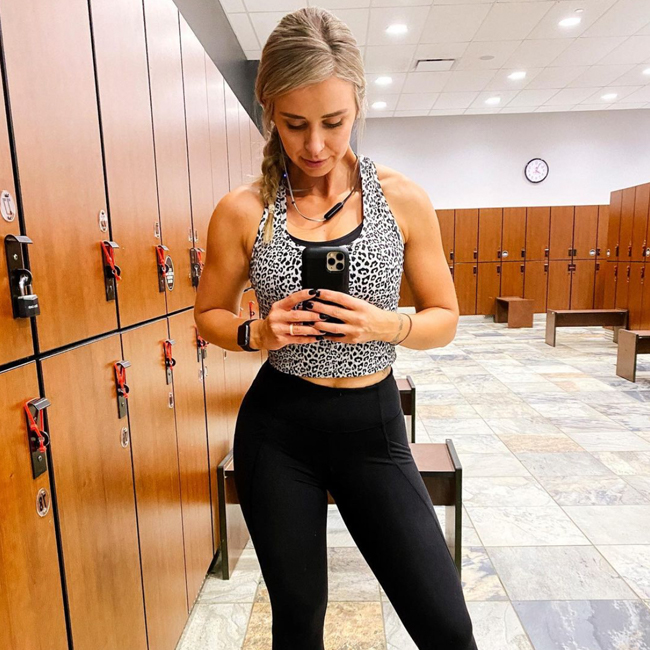
Hi Jaymi! Thank you so much for taking time to speak with me. Can you start by telling us a little about yourself, personally and professionally?
Hi Lauren! Thank you so much for asking me to be a part of this. First and foremost, I am a mom to a rambunctious little 2-year-old and married to my best friend. I love to bake and cook and my specialty is trying to create our favourite comfort foods with a healthy twist, or making them gluten-free and dairy-free, so I can indulge with my intolerances. Professionally, I have been a personal trainer for over 10 years and have done multiple nutrition courses over the years, but recently got certified with the international sports science association as a certified nutritionist. I have such a passion for both health and fitness that most days don’t feel like work to me. On the side, I also run a podcast about health fitness and life in general, and am starting another one in 2021.
You do so much within the area of wellness – personal training, nutrition coaching, and working with mamas-to-be and new moms. What sparked that interest in you?
At a young age I had a lot of struggles with weight and body image. I battled with a short stint of anorexia in my teens then with binge eating in university. Going through both stages of eating disorders, and going from over-training to under-training, made me want to study both physical fitness and nutrition, so that I could not only help myself, but others that were struggling with the same issues I was having. Once my career had taken off and I had met my husband, I knew I wanted to become a mama. At first I wanted to become a pre/post-natal specialist for my own well-being, so I knew how to train and recover when I got pregnant and had my own baby, but once I became certified and put that out into the universe the amount of women I had come to me for training was amazing. I saw there was a real need for that – luckily I was able to work all over Canada, so I was able to work with mamas in Winnipeg, Ottawa, and then Calgary where my husband and I live now.
I know a lot of these questions will be tough to answer, since with your one-on-one coaching, you really dig deep into learning about the person, their lifestyle, and create a personal program for their wellness journey. But in general terms, what should a woman who is trying to conceive be doing for workouts and nutrition?
Yes, every woman is different, but in general, you want to be following a few basic rules. Remember that exercising is important and can help with fertility, but if you are new to exercise, make sure to find something that works for you! You want to start a regime that you will enjoy and that won’t cause you and your body too much stress. Starting an extreme exercise program that your body isn’t use to can actually cause long lasting problems when it comes to our hormones and fertility health. If you are new to exercise, start with low impact compound movements – pilates, barre, or yoga. For beginners, I highly recommend reaching out to a professional for help. If you are already at an intermediate or advanced stage for exercise, then keep doing what you’re doing, but try to avoid over-training and putting too much stress on your body. When it comes to nutrition, you want to start to limit your caffeine, alcohol, and sugar intake as soon as you start trying to conceive. You want to aim for lots of water, eating a variety of fruits and veggies, and lots of protein.
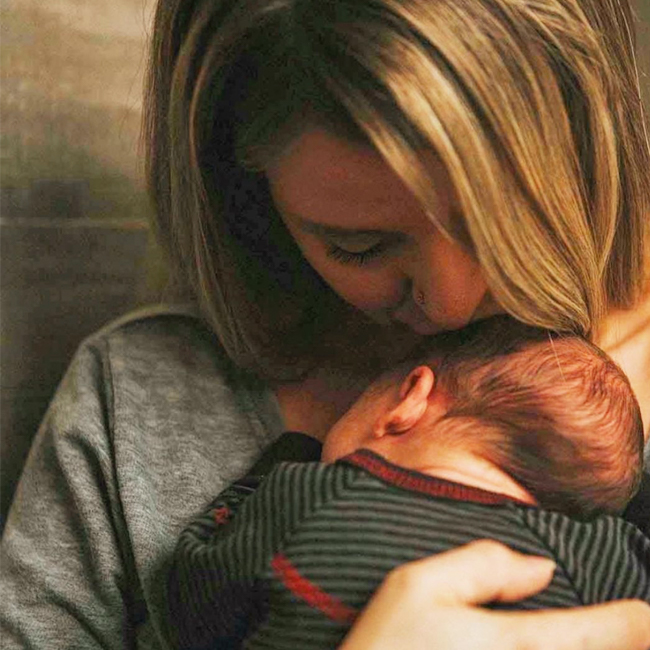
Now, let’s get into once a woman has conceived! Are there some workouts that should be completely avoided throughout the entire pregnancy?
When it comes to getting pregnant you want to stick to what your body is use to and what it knows. Every trimester will be different, but in general, I always let women know that if you’re not a runner, don’t start running now that you’re pregnant. If you’re not a power lifter, starting powerlifting when pregnant is not the time. Just don’t attempt a new style of training if you have never done it before. I have been weight lifting for 12 years, but I have never been a runner, so while I was pregnant I continued to lift 4-5x a week with almost my usual routine, but for cardio, I only rode the bike and walked on the treadmill – I didn’t try to add in anything new.
What are some exercises that should be avoided in different trimesters?
First Trimester: Avoid high impact/intensity exercises – bouncing/sprinting/jumps (light jumps are okay, if you’re used to it). Avoid fast twisting movements, bending backwards, and any kind of contact sports – anything that will cause excessive sweating or increase you heart rate too high.
Second Trimester: Avoid crunches, lying leg lifts, and anything that requires you to lie on your back for longer then a few minutes. As well as everything you avoided in your first trimester.
Third Trimester:- Start to lower the intensity more then the 1st and 2nd trimesters. Take longer breaks and still avoid the same things as you did in the 1st and 2nd. Like I said before, I have strength-trained for years, and was able to stick to my routine with some minor changes. I worked out 4-5x a week until my third trimester, then cut my workouts down to 2-3x a week, but would still walked on the treadmill when I felt I had the energy. Th most important thing is to listen to your body!
Along those lines, are there specific workouts you recommend for the different stages of pregnancy?
It all depends on where the client is at. If they are new to working out, then I recommend starting pilates, light cardio, and basic compound movements with proper form, or yoga for beginners. If advanced, I suggest they stick to what they have been doing, with those restrictions we just discussed, and make sure they are listening to their body.
Can you suggest some safe core exercises for expectant mothers?
Seated knee lifts, kegels, standing pelvic tilt, short side planks, side lying crunch, and standing TA engagement.
We’ve given birth! Now what?! What’s your recommendation for getting back into working out post-birth?
This all depends on how labour and birth went! If everything went great, you can start doing your kegel exercises and 30 minute walks 24-48 hours after delivery, if you have the energy for it! The biggest thing here is to listen to you body and your doctor’s [midwive’s] orders. Most women can get back into a regular regime 4-6 weeks after [a vaginal birth] and 8 week post a caesarean birth.
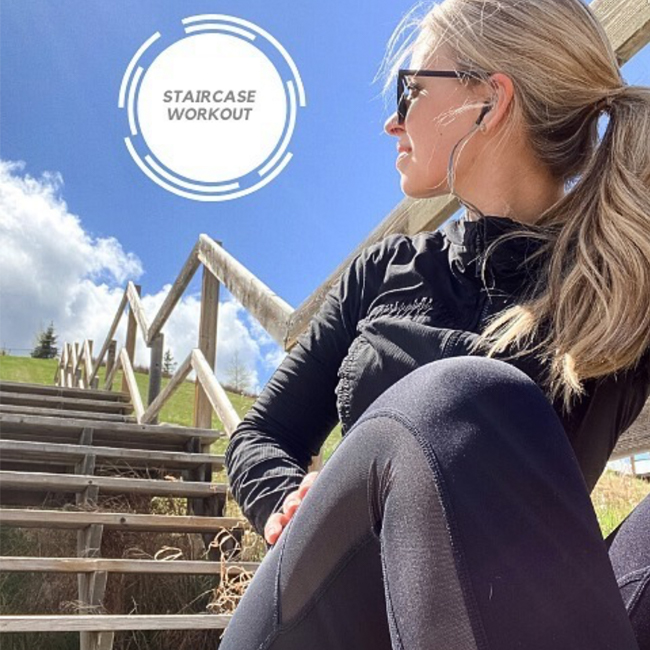
Do you have suggestions for gaining back strength in your hips, pubic muscles, and core postpartum?
Yes! Kegles, kegels, kegels! They will be your best friend on getting those pubic muscles back. Also, simply practicing basic breathing exercises – proper breath is a core exercise in itself and so important when concentrating on strengthening your core. Bent knee leg lifts and short planks are great as well. For hips, I love to incorporate resistance bands into my training to work on strengthening the lower back, hips and glutes.
What do you recommend for mothers that had a caesarean birth?
It depends on how it went – if you had a planned c-section, which is a lot less stress on the body, after your 6-week check up with your doctor, you should be able to start exercising around 6-8 weeks postpartum. If you had an emergency c-section, or any other complications, then it could be a bit longer, like 10 weeks. It’s also important to massage your cesarean scar post c-section. A surgical incision like that will disrupt your fascia. Our fascia is fibrous tissue that surrounds our muscles. Those fibres are supposed to run smooth in a straight line, allowing muscle and tissues to easily glide as they are moving. When our fascia is disrupted like in surgery and not taken care of, it grows back uneven and can cause problems with our muscles and our organs.
Okay, can we talk about the mom butt…?
Haha, oh the mom butt…the amount of postpartum clients I’ve had ask me this question! I have done so much research on this and there is still no evidence on why we lose our bum after baby, but what I have noticed is that the common denominator is how strong your core and glutes are pre-baby and what you do during pregnancy. Also, if you’re not paying attention to your pelvic tilt, that could cost you as well. I like to call myself the queen of building the booty (haha), so if you ever need any tips for this or workouts to aim for, let me know! It depends on your level of fitness, but there are some great glute combos I give to my postpartum clients that have worked wonders.
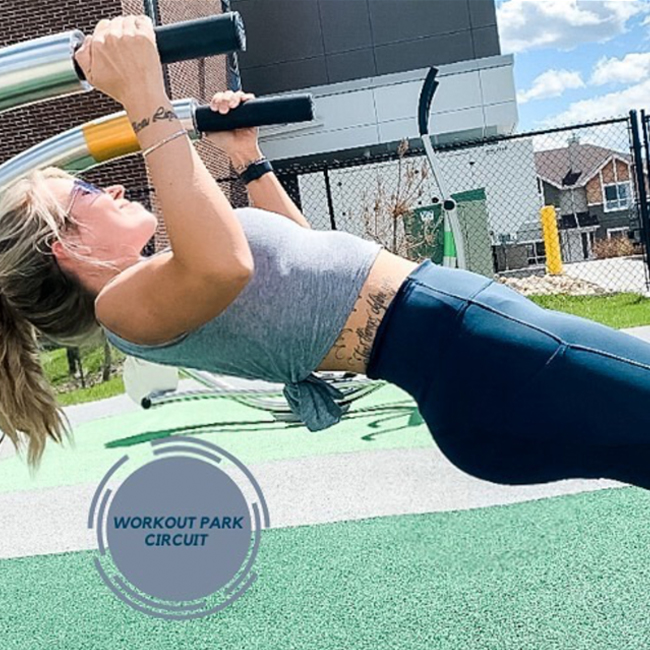
Lately I’ve been hearing a lot about it taking 2 years postpartum to find your body’s “new normal”. Which I think is very comforting for women to hear, as they are potentially breastfeeding, and still working out and eating healthy. Do you find this to be true? What do you think women can expect from their bodies at various times throughout their postpartum journey?
YES! This is 100% correct. Honestly, as a specialist in this area, I thought I would bounce back immediately. Especially with social media these days, you see some fitness moms and assume you will be the same. Well unfortunately, its not that way for everyone. Every woman is different, and post-baby our hormones are all over the place. Breastfeeding can cause huge changes in weight gain/loss etc. Personally, I actually developed extreme food intolerances to gluten and dairy and had to go for tons of tests post-baby to figure out why I couldn’t lose the weight, and my moods were completely off. As a specialist, it took me a solid 2 years to “get my body back” and I can happily say I’m in better shape now than I was pre-baby.
Just remember what your body went through, you literally created a life and that is the most amazing thing you can do. You can ALWAYS get your body back! It may take months or years, but with the right professionals in your corner, it is possible. After seeing my doctor and not being satisfied with what was happening with my thyroid and blood tests, I ended up seeing a naturopath who was a game changer for me. After some blood tests and then proper supplements, and completely changing my nutrition regime, I was back on track with my energy, mood, and then eventually body image. I also don’t like for my clients to focus on weight after baby, because so many factors cause your weight to stay the same or go up. Instead focus on how you’re feeling, and how your clothes are fitting. I am 8 pounds heavier now than pre-baby, yet still fit in the same clothes I did before. Once you start training and gaining muscle, your weight will change, but you will actually look and feel leaner!
Is there anything else you want to add?
There will be times when you’re trying to conceive, or during pregnancy and after baby, that you might feel down or like you don’t have the energy to workout, and that’s OK! Always listen to your body, keep your stress levels low, and when you’re ready, get those workouts in. Yes, you will always feel better after you get that workout in, and some days will be harder than others, but if you miss one, don’t beat yourself up. Rest days are just as important. ALSO, cravings are good! If you’re craving a certain food, allow yourself to have it – just try not to overdo it. Usually our bodies are craving a certain food because we are lacking it – salt, sugar etc. So, caving into the craving isn’t the end of the world. Just watch your intake and always make sure to get that water in 😉
Where can people follow along with you?
Please follow my instagram page @followmyfirst, and I have my new website full of recipes, blogs, podcasts and much more!
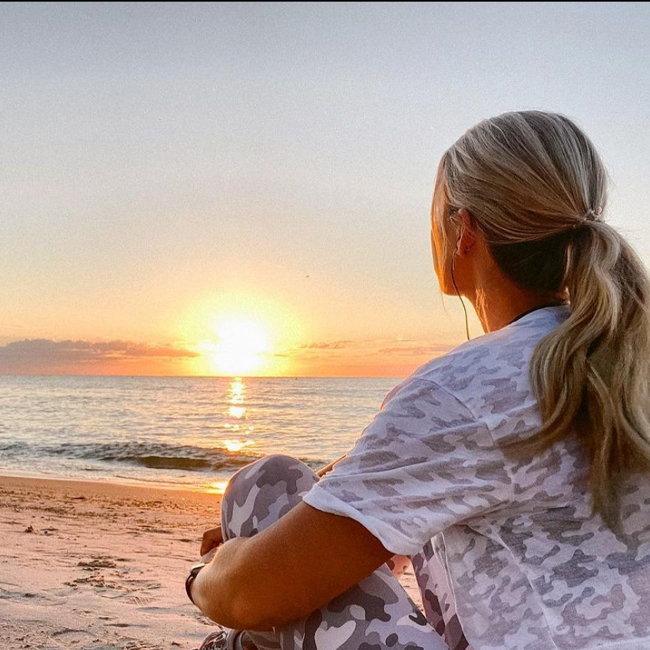
Thank you, Jaymi, for all your fitness and wellness expertise!
